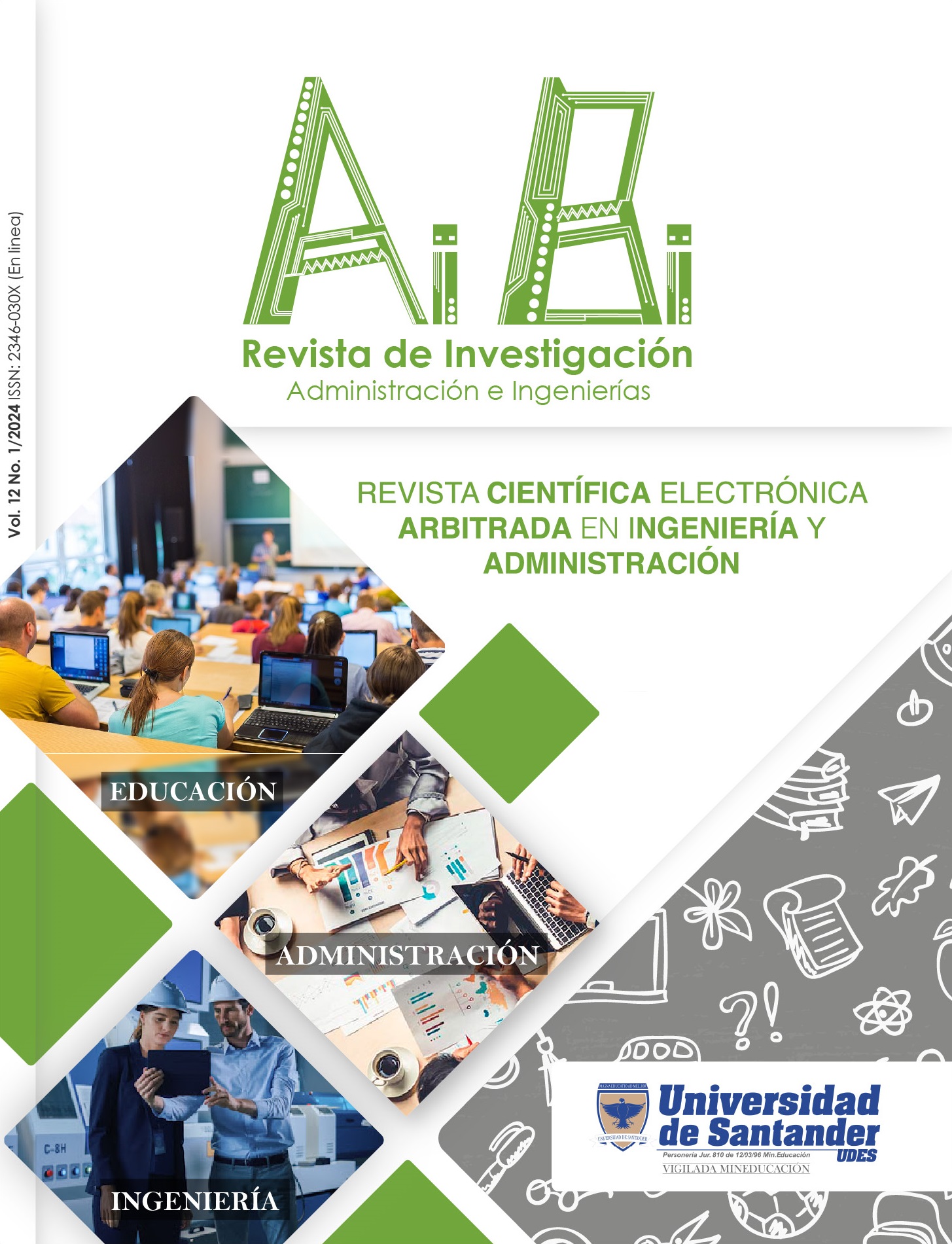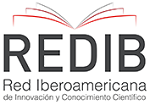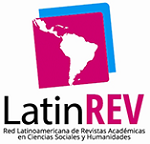Estandarización de las definiciones de consumo ético, consumo responsable y consumo sustentable por análisis semántico, y tipología del consumo sustentable
DOI:
https://doi.org/10.15649/2346030X.3426Palabras clave:
consumo responsable, consumo ético, consumo sustentableResumen
Este artículo pretende contribuir a una mejor organización del conocimiento mediante una propuesta de estandarización del vocabulario y una tipología de las prácticas de consumo sustentable de bienes tangibles. La literatura cuenta con varios calificativos para señalar un consumo que presente la característica de ser benéfico para el medioambiente, así como para el entorno social. Algunos de ellos son: el consumo ético (CE), el consumo responsable (CR), y el consumo sustentable (CS). A menudo, estos términos se ocupan de forma indistinta, ocasionando confusión para i-nvestigar, comparar o consolidar estudios. Sin embargo, se trata de conceptos lingüísticamente distintos y lo pertinente sería seleccionar el calificativo que corresponda con precisión al objeto de estudio. Para lograr el objetivo del presente trabajo, se realizó una revisión bibliográfica que nos permitiera identificar las principales definiciones de la literatura académica y se buscó apoyo en la semántica, para establecer una definición precisa para cada término. Derivado de lo anterior y como aportación adicional al estado del arte, se propone una tipología de las prácticas asociadas al CS de bienes tangibles, distinguiendo el CS por tipo de producto, el CS por tipo de canal, el CS por comercio colaborativo, y el CS no monetario. De aplicarse al campo de la administración sustentable, estas definiciones y tipología de CS aportarían una mejoría notable en la estructura del conocimiento procedente de futuras investigaciones.
Referencias
M. Carrigan and A. Attalla, The myth of the ethical consumer – do ethics matter in purchase behaviour?, vol. 18, no. 7. 2001. doi: 10.1108/07363760110410263.
C. Barnett, P. Cafaro, and T. Newholm, “Philosophy and Ethical Consumption,” in The ethical consumer, London, 2005, pp. 11–24. doi: 10.4135/9781446211526.
T. Newholm and D. Shaw, “Studying the ethical consumer : A review of research,” J. Consum. Behav., vol. 6, no. 5, pp. 253–270, 2007, doi: 10.1002/cb.
M. G. Martinez and N. Poole, “Fresh Perspectives 4 – Ethical consumerism: development of a global trend and its impact on development,” pp. 2005–2006, 2009, [Online]. Available: http://eprints.soas.ac.uk/7489/
V. Bezençon and S. Blili, “Ethical products and consumer involvement: what’s new?,” European Journal of Marketing, vol. 44, no. 9/10. pp. 1305–1321, 2010. doi: 10.1108/03090561011062853.
E. Papaoikonomou, G. Ryan, and M. Valverde, “Mapping Ethical Consumer Behavior: Integrating the Empirical Research and Identifying Future Directions,” Ethics Behav., vol. 21, no. 3, pp. 197–221, 2011, doi: 10.1080/10508422.2011.570165.
R. Sebastiani, F. Montagnini, and Daniele Dalli, “Ethical Consumption and New Business Models in the Food Industry . Evidence from the Eataly Case,” pp. 473–488, 2013, doi: 10.1007/s10551-012-1343-1.
P. F. Burke, C. Eckert, and S. Davis, “Segmenting consumers’ reasons for and against ethical consumption,” European Journal of Marketing, vol. 48, no. 11/12. pp. 2237–2261, 2014. doi: 10.1108/EJM-06-2013-0294.
J. C. Oh and S. J. Yoon, “Theory-based approach to factors affecting ethical consumption,” Int. J. Consum. Stud., vol. 38, no. 3, pp. 278–288, 2014, doi: 10.1111/ijcs.12092.
V. Hasanzade, V.-S. Osburg, and W. Toporowski, “Selecting decision-relevant ethical product attributes for grocery shopping,” Manag. Decis., vol. 56, no. 3, pp. 591–609, 2018, doi: 10.1108/MD-12-2016-0946.
N. Ozcaglar-Toulouse, “Apport du concept d’identité à la compréhension du comportement du consommateur responsable,” 2005.
N. Ozcaglar-Toulouse, “Living for ‘ethics’’: Responsible consumption ineveryday life,” Res. Consum. Behav., vol. 11, pp. 421–436, 2007.
D. J. Webb, L. A. Mohr, and K. E. Harris, “A re-examination of socially responsible consumption and its measurement ☆,” vol. 61, pp. 91–98, 2008, doi: 10.1016/j.jbusres.2007.05.007.
J. Jacques, “Sens et portée de la consommation responsable chez les jeunes.,” UNIVERSITÉ DU QUÉBEC À MONTRÉAL, 2009.
M. Giesler and E. Veresiu, “Creating the Responsible Consumer: Moralistic Governance Regimes and Consumer Subjectivity,” J. Consum. Res., vol. 41, no. 3, pp. 840–857, 2014, doi: 10.1086/677842.
F. Durif and C. Boivin, “Baromètre de la consommation responsable Edition Québec 2017,” 2017.
D. Mckenzie-Mohr, “Promoting Sustainable Behavior: An Introduction to Community-Based Social Marketing,” J. Soc. Issues, vol. 56, no. 3, pp. 543–554, 2000, doi: 10.1111/0022-4537.00183.
I. Vermeir and W. Verbeke, “Sustainable food consumption among young adults in Belgium: Theory of planned behaviour and the role of confidence and values,” Ecol. Econ., vol. 64, no. 3, pp. 542–553, 2008, doi: 10.1016/j.ecolecon.2007.03.007.
A. Prothero et al., “Sustainable Consumption: Opportunities for Consumer Research and Public Policy,” J. Public Policy Mark., vol. 30, no. 1, pp. 31–38, 2011, doi: 10.1509/jppm.30.1.31.
S. Caeiro, T. B. Ramos, and D. Huisingh, “Procedures and criteria to develop and evaluate household sustainable consumption indicators,” J. Clean. Prod., vol. 27, pp. 72–91, 2012, doi: 10.1016/j.jclepro.2011.12.026.
M. G. Luchs and C. William, “Exploring consumer responsibility for sustainable consumption,” vol. 31, pp. 1449–1471, 2015.
J. Dermody, N. Koenig-lewis, A. Lifen, and S. Hanmer-lloyd, “Appraising the influence of pro-environmental self-identity on sustainable consumption buying and curtailment in emerging markets : Evidence from China and Poland,” J. Bus. Res., no. September, pp. 0–1, 2017, doi: 10.1016/j.jbusres.2017.09.041.
L. N. Vanegas and M. I. Mejía, “Diagnosis of education programs in sustainable consumption and market green policy sustainable production capital district Diagnóstico de los programas educación en consumo sostenible y mercados verdes de la política de producción sostenible del distrito ,” vol. 20, no. 1, pp. 11–20, 2018.
D. McKenzie-Mohr, “Fostering sustainable behavior through community-based social marketing.,” Am. Psychol., vol. 55, no. 5, pp. 531–537, 2000, doi: 10.1037/0003-066X.55.5.531.
A. Schaefer and A. Crane, “Addressing Sustainability and Consumption,” J. Macromarketing, vol. 25, no. 1, pp. 76–92, 2005, doi: 10.1177/0276146705274987.
W. E. Kilbourne, S. C. Beckmann, E. William, and C. Suzanne, “Review and Critical Assessment of Research on Marketing and the Environment,” J. Mark. Manag., vol. 14, no. 6, p. 513:532, 1998, doi: 10.1362/026725798784867716.
UNESCO, “Programme de l’homme et de la bio-sphère. Analyse des réponses des états membres,” 1971.
V. T. A. Whyte, La perception de l’environnement: lignes directrices méthodologiques pour les études sur le terrain. 1978.
S. Dueñas Ocampo, J. Perdomo-Ortiz, and L. E. Villa Casta, “El concepto de consumo socialmente responsable y su medición. Una revisión de la literatura,” Estud. Gerenciales, vol. 30, pp. 287–300, 2014, doi: 10.1016/S0123-5923(13)70015-9.
F. E. Webster, “Determining the Characteristics of the Socialiy Conscious Consumer,” vol. 2, no. December, 1975.
J. A. Roberts, “Will the socially responsible consumer please step forward?,” Bus. Horiz., vol. 39, no. 1, p. 79:84, 1996.
C. Strong, “Features contributing to the growth of ethical consumerism – a preliminary investigation,” Mark. Intell. Plan., vol. 14, no. 5, pp. 5–13, 1996.
G. J. Biehal and D. A. Sheinin, “The Influence of Corporate,” J. Mark., vol. 71, no. April, pp. 12–25, 2007.
W. E. Kilbourne, S. C. Beckmann, and E. Thelen, “The role of the dominant social paradigm in environmental attitudes: A multinational examination,” J. Bus. Res., vol. 55, no. 3, pp. 193–204, 2002, doi: 10.1016/S0148-2963(00)00141-7.
K. Lee, “Opportunities for green marketing: young consumers,” Mark. Intell. Plan., vol. 26, no. 6, pp. 573–586, 2008, doi: 10.1108/02634500810902839.
M. J. Carrington, B. Neville, and R. Canniford, “Unmanageable multiplicity: consumer transformation towards moral self coherence,” European Journal of Marketing, vol. 49, no. 7/8. pp. 1300–1325, 2015. doi: 10.1108/EJM-06-2014-0379.
M. Combes, “Quel avenir pour la Responsabilité Sociale des Entreprises (RSE) ?,” Manag. Avenir, vol. 6, no. 4, p. 131, 2005, doi: 10.3917/mav.006.0131.
D. H. . A. O. Meadows, The Limits of Growth. A Report for The Club of Rome’s Project on the Predicament of Mankind. New York, 1972.
S. L. Pimm et al., “The biodiversity of species and their rates of extinction, distribution, and protection,” Science (80-. )., vol. 344, no. 6187, 2014, doi: 10.1126/science.1246752.
H. S. Brown and P. J. Vergragt, “From consumerism to wellbeing: toward a cultural transition?,” J. Clean. Prod., vol. 132, pp. 308–317, 2016, doi: 10.1016/j.jclepro.2015.04.107.
J. P. Clark, “Political Ecology,” in Encyclopedia of Applied Ethics, 2nd Ed., V.San Diego: Academic Press, 2012, pp. 505–516. [Online]. Available: https://www.academia.edu/2943355/_Political_Ecology_An_Introduction_
A. Borgmann, “The Moral Complexion of Consumption,” vol. 26, no. March, pp. 418–423, 2000.
Scopus, “Cantidad de publicaciones académicas (article) conteniendo en el título, resumen o palabras claves los términos en inglés de consumo (consumption) y ético (ethical) o responsable (responsible) o sustentable (sustainable) en el campo de la administración,” 2018. https://www-scopus-com.pbidi.unam.mx:2443/term/analyzer.uri?sid=0f23248b7886094ff8be86b44bda3630&origin=resultslist&src=s&s=TITLE-ABS-KEY%28consumption+AND+ethical+OR+responsible+OR+sustainable%29+AND+DOCTYPE%28ar%29+AND+PUBYEAR+%3C+2018&sort=plf-f&sdt=a& (accessed May 05, 2018).
C. Valor and I. Carrero, “Viewing Responsible Consumption as a Personal Project,” Psychol. anf Mark., vol. 31, no. December, pp. 1110–1121, 2014, doi: 10.1002/mar.
J. Elkington and J. Hailes, The Green Consumer’s Supermarket Guide. London: Orion Publishing Co, 1989.
M. J. Carrington, B. A. Neville, and G. J. Whitwell, “Lost in translation: Exploring the ethical consumer intention-behavior gap,” J. Bus. Res., vol. 67, no. 1, pp. 2759–2767, 2014, doi: 10.1016/j.jbusres.2012.09.022.
S. R. Nicolás and R. R. Herrera, “¿Cómo podemos distinguir a los vendedores éticos de los que no lo son?: Implicaciones para el proceso de selección y formación de los comerciales,” Cuad. Gest., vol. 11, no. SUPPL. PECIALISSU, pp. 85–99, 2011, doi: 10.5295/cdg.100273sr.
C. Barnett, P. Cloke, N. Clarke, and A. Malpass, “Consuming Ethics : Articulating the Subjects and Spaces of Ethical Consumption,” Antipode, 2005.
J.H. Antil, “Socially Responsible Consumers: Profile and Implications for Public Policy,” J. Macromarketing, vol. 4, no. 2, pp. 18–39, 1984, doi: https://doi.org/10.1177/027614678400400203.
F. Scott B. and D. Jobber, “Environmentally responsible purchase behaviour: a test of a consumer model,” Eur. J. Mark., vol. 34, no. 5/6, pp. 723–746, 2000, doi: https://doi.org/10.1108/03090560010322009.
K. Hobson, “Competing Discourses of Sustainable Consumption: Does the ?Rationalisation of Lifestyles? Make Sense?,” Env. Polit., vol. 11, no. 2, pp. 95–120, 2002, doi: 10.1080/714000601.
R. Caruana, “A sociological perspective of consumption morality,” J. Consum. Behav., vol. 304, pp. 287–304, 2007, doi: 10.1002/cb.
M. Zolfagharian and I. Pentina, “The tripartite model of responsible consumption,” Soc. Bus., vol. 1, no. 2, 2011, doi: 10.1362/204440811X593054.
A. Prothero and P. McDonagh, “Sustainability Marketing Research: Past, Present and Future,” J. Mark. Manag., vol. 30, 2014, doi: 10.1080/0267257X.2014.943263.
E. Ulusoy, “Experiential responsible consumption,” J. Bus. Res., 2015, doi: 10.1016/j.jbusres.2015.07.041.
A. Guari and P. Knorringa, “New Middle-Class Consumers in Rising Powers : Responsible Consumption and Private Standards,” Oxford Devolpment Stud., vol. 42, no. 2, pp. 196–216, 2014.
United Nations, “Sustainable consumption and production,” 1994. https://sustainabledevelopment.un.org/topics/sustainableconsumptionandproduction (accessed Jan. 31, 2019).
D. Fischer and M. Barth, “Key competencies for and beyond sustainable consumption: An educational contribution to the debate,” Gaia, vol. 23, pp. 193–200, 2014, doi: 10.14512/gaia.23.S1.7.
E. Huddart, N. Krogman, and H. Krahn, “Sustainable Consumption and the Importance of Neighbourhood : A central City / Suburb Comparison,” vol. 38, no. 3, pp. 359–382, 2016.
E. A. Severo, J. C. F. de Giumarães, L. M. P. Brito, and M. L. Dellarmelin, “Environmental sustainability and sustainable consumption: the perception of baby boomers, generation x and y in brazil,” Rev. Gestão Soc. e Ambient., vol. 11, no. 3, pp. 92–110, 2017.
V. Gabriel, “Environmentally sustainable investment: Dynamics between global thematic indices,” Cuad. Gest., vol. 19, no. 1, pp. 41–62, 2018, doi: 10.5295/CDG.150545VG.
M. Meulenberg, “Consumer and citizen, meaning for the market of agricultural products and food products,” Tijdschr. voor Sociaalwetenschappelijk Onderz. van Landbouw, vol. 18, no. 1, pp. 43–54, 2003, doi: 10.1007/s10806-005-5485-3.
T. Green, G. Sinclair, and J. Tinson, “Do they Know it’s CSR at all? An Exploration of Socially Responsible Music Consumption,” J. Bus. Ethics, vol. 138, no. 2, pp. 231–246, 2016, doi: 10.1007/s10551-015-2582-8.
L. E. Villa Castaño, J. Perdomo-Ortiz, S. Dueñas Ocampo, and W. F. Durán León, “Socially responsible consumption: an application in Colombia,” Bus. Ethics, vol. 25, no. 4, pp. 460–481, 2016, doi: 10.1111/beer.12128.
J. M. Lee, H. J. Kim, and J. Y. Rha, “Shopping for society? Consumers’ value conflicts in socially responsible consumption affected by retail regulation,” Sustain., vol. 9, no. 11, 2017, doi: 10.3390/su9111968.
C. Valor, A. Merino, I. Carrero, E. Díaz, V. Labajo, and P. Bilbao, “Why One Becomes a Responsible Consumer : The Creation and Maintenance of Responsible Consumption as a Self-Determined Personal Project,” Hum. Ecol. Rev., vol. 19, no. 2, pp. 159–175, 2012.
Université de Montréal, “Qu’est-ce que la linguistique?” http://ling-trad.umontreal.ca/departement/quest-ce-que-la-linguistique/ (accessed May 07, 2018).
C. Kerbrat-Orecchioni, “Sémantique,” Encyclopaedia Universalis France. https://www.universalis.fr/encyclopedie/semantique/ (accessed May 07, 2018).
A. Martinet, Eléments de linguistique générale. Paris, 1980.
N. García Canclini, El consumo cultural y su estudio en México: una propuesta teórica. Consejo Nacional para la Cultura y las Artes, Pensar la Cultura, 1993. [Online]. Available: http://ccdoc.iteso.mx//cat.aspx?cmn=browse&id=1022
A. Firat, K. Kutucuoglu, I. Arikan Saltik, and O. Tunçel, “Consumption, consumer culture and consumer,” J. Community Posit. Pract., vol. XIII, no. 1, pp. 182–203, 2013.
G. Floistad, Ethics or Moral Philosophy. 2014. doi: 10.1007/978-94-007-6895-6_13.
J. Fieser, “Internet Encyclopedia of Philosophy.”
CNRTL, “Éthique,” Centre National de Ressources Textuelles et Lexicales, 2012. http://www.cnrtl.fr/definition/ethique (accessed Sep. 05, 2018).
I. Mourral and L. Millet, “Éthique,” Petite encyclopédie philosophique. 1993.
J. Lagarrigue and G. Lebe, “Éthique Ou Morale ?,” Rech. Form. Conscienc. éthique Prat. Prof. sous la Dir. Gilles Ferry, vol. 24, pp. 121–130, 1997, doi: https://doi.org/10.3406/refor.1997.1405.
J. R. Rest, Moral development: advances in research and theory. London, 1986.
Real Academia Española, “Responsabilidad.” http://dle.rae.es/?id=WCqQQIf (accessed May 16, 2018).
CNRTL, “Responsabilité,” Centre National de Ressources Textuelles et Lexicales, 2012. http://www.cnrtl.fr/definition/responsabilité (accessed May 16, 2018).
A. Braz, “La responsabilidad en la obra de Kant: Heterogeneidad y tránsito entre el derecho y la ética,” Univ. Philos., vol. 19, no. 39, pp. 119–172, 2002, [Online]. Available: http://revistas.javeriana.edu.co/index.php/vniphilosophica/article/view/11348
H. Jonas, The imperative of responsibility : In search of an ethics for the technological age. 1984.
H. Berdinesen, “On Hans Jonas ‘The imperative of responsibility,’” Philosophia (Mendoza)., vol. 17, pp. 16–28, 2017, [Online]. Available: https://philosophia-bg.com/archive/philosophia-17-2017/on-hans-jonas-the-imperative-of-responsibility/
Real Academia Española, “Sustentable.” http://dle.rae.es/?id=YpjGrNt (accessed May 17, 2018).
H. M. Abelardo, El cuidado del medio ambiental: análisis, reseñas, propuestas, crónicas, tesis, concepciones y paradigmas. 2000.
G. H. Brundtland, “Our Common Future: Report of the World Commission on Environment and Development,” United Nations Comm., vol. 4, no. 1, p. 300, 1987, doi: 10.1080/07488008808408783.
M. A. Cruz Reyes, “Generación de valor sustentable en la industria agoalimentaria en México,” 2016.
I. Sachs, “Social sustainability and whole development: exploring the dimensions of sustainable development,” in Sustainability and the social sciences: a cross-disciplinary approach to integrating environmental considerations into theoretical reorientation, London: Zed Books, 1999, p. 336.
H. Alhaddi, “Triple Bottom Line and Sustainability: A Literature Review,” Bus. Manag. Stud., vol. 1, no. 2, pp. 6–10, 2015, doi: 10.11114/bms.v1i2.752.
J. Elkington, “Accounting for the triple bottom line,” Meas. Bus. Excell., vol. 2, no. 3, pp. 18–22, 1998, [Online]. Available: http://dx.doi.org/10.1108/eb025539
N. García Canclini, “El consumo cultural: una propuesta teórica,” in El consumo cultural en América Latina. Construcción teórica y líneas de investigación, 2da ed.Bogotá, Colombia: Convenio Andrés Bello, 2006.
CNRTL, “Croyance,” Centre National de Ressources Textuelles et Lexicales, 2012. http://www.cnrtl.fr/definition/croyance
M. A. Cruz Reyes, J. A. Adam Siade, J. A. Juárez González, and N. Simón Domínguez, “Generación de valor sustentable,” in Hacia una administración sustentable, U. Facultad de Contaduría y Administración, Ed., 2016, p. 358.
Scopus, “Scopus,” 2018. https://www-scopus-com.pbidi.unam.mx:2443/search/form.uri?display=basic (accessed May 05, 2018).
I. Robert, A. Binninger, and N. Ourahmoune, “La consommation collaborative , le versant encore équivoque de l’ économie de la fonctionnalité,” Développement durable Territ. [En ligne], vol. 5, no. 1, pp. 0–30, 2014, doi: 10.4000/developpementdurable.10222.
S. E. Armendáriz, “Consumo sustentable: un enfoque integral,” Mexico city, 2014. doi: 978-607-8246-20-5.
Descargas
Publicado
Cómo citar
Descargas
Número
Sección
Licencia
Derechos de autor 2024 AiBi Revista de Investigación, Administración e Ingeniería

Esta obra está bajo una licencia internacional Creative Commons Atribución 4.0.
La revista ofrece acceso abierto bajo una Licencia Creative Commons Attibution License

Esta obra está bajo una licencia Creative Commons Attribution (CC BY 4.0).










